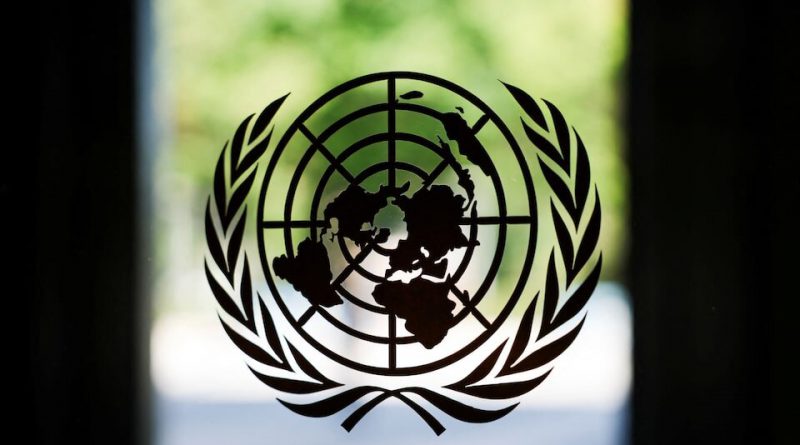UN Maritime Agency’s Carbon Pricing Talks Extended: A Step Toward Balanced, Inclusive Climate Action
The International Maritime Organization (IMO) has delayed its decision on a global carbon price for shipping by a year — a move aimed at fostering broader consensus and ensuring fair participation from all nations, including major maritime and energy stakeholders.
In a decision that underscores the complexity of global climate negotiations, the United Nations’ International Maritime Organization (IMO) has voted to extend discussions on introducing a global carbon pricing mechanism for shipping.
The one-year delay, while seen by some as a setback, is being viewed by others as an opportunity for deeper dialogue, broader alignment, and the development of a more inclusive framework that balances economic growth with environmental responsibility.
The IMO, which regulates international shipping safety, security, and environmental standards, convened in London this week to deliberate on a proposal to implement a global carbon price.
The measure, backed by the European Union and several developing economies such as Brazil, sought to create a structured mechanism to reduce carbon emissions in the maritime industry — a sector responsible for nearly 3% of global CO₂ emissions.
While the proposal gained substantial support, it faced resistance from major oil producers, including the United States and Saudi Arabia, who emphasized the need for a more comprehensive approach that does not disproportionately impact trade-dependent economies or energy security.
Following extensive discussions, a motion introduced by Saudi Arabia to postpone the decision for one year was passed by a majority of 57 countries, with 49 voting against.
The decision to delay, though initially perceived as a disappointment by environmental advocates, highlights a broader recognition among nations that sustainable climate policy must be inclusive, equitable, and economically viable.
Officials close to the negotiations said that the additional time would allow the IMO and its 176 member states to explore innovative financial models and ensure that developing nations — many of which rely heavily on maritime trade — are not unfairly burdened by new carbon costs.
“Global shipping must decarbonize, but it must do so in a way that is fair and feasible for all,” an IMO delegate explained. “This pause offers the chance to align ambitions with capabilities and to design a policy that works for both developed and emerging economies.”
Industry Reaction: Hope for a Stronger Framework
The shipping industry’s response has been measured. While some companies expressed concern about the delay, others viewed it as a window to refine the details of a practical carbon framework.
Danish shipping giant Maersk, a pioneer in sustainable maritime transport, said the IMO’s decision represented a temporary pause rather than a loss of momentum. The company reaffirmed its commitment to decarbonization and expressed optimism that the coming year could lead to clearer, stronger global guidelines.
“The delay leaves the shipping sector in uncertainty for now,” said Faig Abbasov, Director of Shipping at Transport & Environment, an environmental group. “But it also offers an opportunity for nations to align on a coherent, science-based framework that can truly drive progress.”
For many industry leaders, clarity and predictability remain key. The proposed carbon pricing framework is expected to create a level playing field by incentivizing innovation, promoting alternative fuels, and encouraging investments in modern, energy-efficient vessels. Experts believe that, once finalized, such a system could unlock billions in green investments and accelerate maritime decarbonization efforts.
The extension also reflects the reality that the maritime industry operates across borders and relies on coordinated global standards. Introducing a carbon price requires consensus among diverse economies with different industrial bases and energy profiles. The year-long delay gives policymakers and industry representatives additional time to address concerns and refine technical details.
Analysts say the debate around carbon pricing is not about resistance to climate goals but about ensuring that the framework supports long-term growth. The U.S. and Saudi Arabia — two of the largest oil producers — have emphasized that any new environmental measure should avoid triggering sudden cost shocks in global trade, especially as developing nations strive to recover from economic disruptions.
Meanwhile, the European Union and climate-conscious countries have expressed hope that the extended timeline will allow for constructive engagement and eventual alignment. Brazil, Greece, and Japan — all key maritime nations — are expected to play pivotal roles in shaping the revised plan, which could serve as a model for other high-emission industries.
Toward a Cleaner and Fairer Shipping Future
The IMO’s decision to continue consultations reflects a maturing understanding of how global environmental governance must evolve — through collaboration, inclusivity, and shared responsibility. The shipping sector, which carries nearly 90% of the world’s trade, stands at the center of this transformation.
While a global carbon price may not arrive immediately, the current process is laying the groundwork for a more stable and equitable transition to cleaner seas. The coming months are expected to see intense technical work, public consultations, and renewed efforts by both governments and private companies to shape a sustainable future for maritime trade.
As one IMO official concluded, “This is not a retreat — it’s a recalibration. Real progress requires unity, and unity takes time.”



